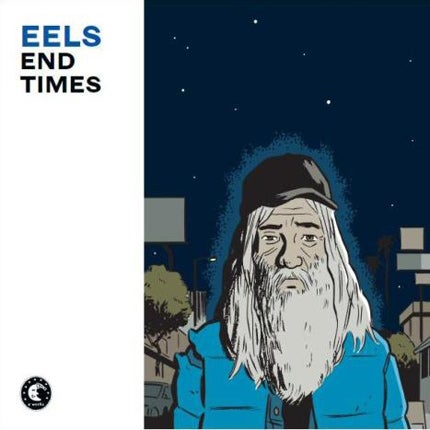Your support helps us to tell the story
From reproductive rights to climate change to Big Tech, The Independent is on the ground when the story is developing. Whether it's investigating the financials of Elon Musk's pro-Trump PAC or producing our latest documentary, 'The A Word', which shines a light on the American women fighting for reproductive rights, we know how important it is to parse out the facts from the messaging.
At such a critical moment in US history, we need reporters on the ground. Your donation allows us to keep sending journalists to speak to both sides of the story.
The Independent is trusted by Americans across the entire political spectrum. And unlike many other quality news outlets, we choose not to lock Americans out of our reporting and analysis with paywalls. We believe quality journalism should be available to everyone, paid for by those who can afford it.
Your support makes all the difference.There will always be those among Eels' dwindling faithful who resent the way the Flaming Lips have enchanted the mainstream over the past 10 years while their hero, Mark "E" Everett, has become a forgotten man.
The similarities go beyond the superficial (a fondness for facial hair, a tendency to yearn for the high notes rather than simply drop down a key), but the single most crucial difference is that Coyne & co can be bothered to knock out a killer pop tune once or twice an album. Them's the breaks. In any case, E has slowly shifted into something more akin to an indie Springsteen (think Nebraska rather than Born to Run), and End Times is a continuation of that process.
The front cover depicts Everett as a line-drawn old-timer with a long white beard, a Santa stripped of his costume. Whoever drew it had plainly been paying attention to the themes of the record itself. The eighth Eels album (13th if you include E's solo work, given that E pretty much is Eels) strikes a confessional tone, his fingers squeaking on the frets as he gruffly contemplates his cowed, cowardly middle-aged self in contrast with his devil-may-care youth.
The sequencing of the tracks makes End Times play out like the chronology of a break-up. In the beginning he's kissing the girl for the first time; by the end he's been dumped. In between, there are a few eyebrow-raising moments to jolt the inevitable predictability of this narrative arc.
"Paradise Blues" describes, with incongruous sweetness, a "Scary little suicide bomber on her way to paradise". Even stranger is "Apple Trees", a short monologue recorded down a telephone line, in which E speaks of looking at a roadside orchard from a car window. Meaningful, maaan.
By the time he reaches the big finale, he seems to have forgotten how to actually write lyrics, and instead sings rhymeless clichés about needing someone to hold him at night.
If it's not too crass to rank break-up confessionals in terms of merit (and once you express something in a work of art, you invite such comparisons), then someone like Conor Oberst is far better at this sort of thing. The converted will take End Times as vindication of their faith. The rest of the world will shrug.

Join our commenting forum
Join thought-provoking conversations, follow other Independent readers and see their replies
Comments